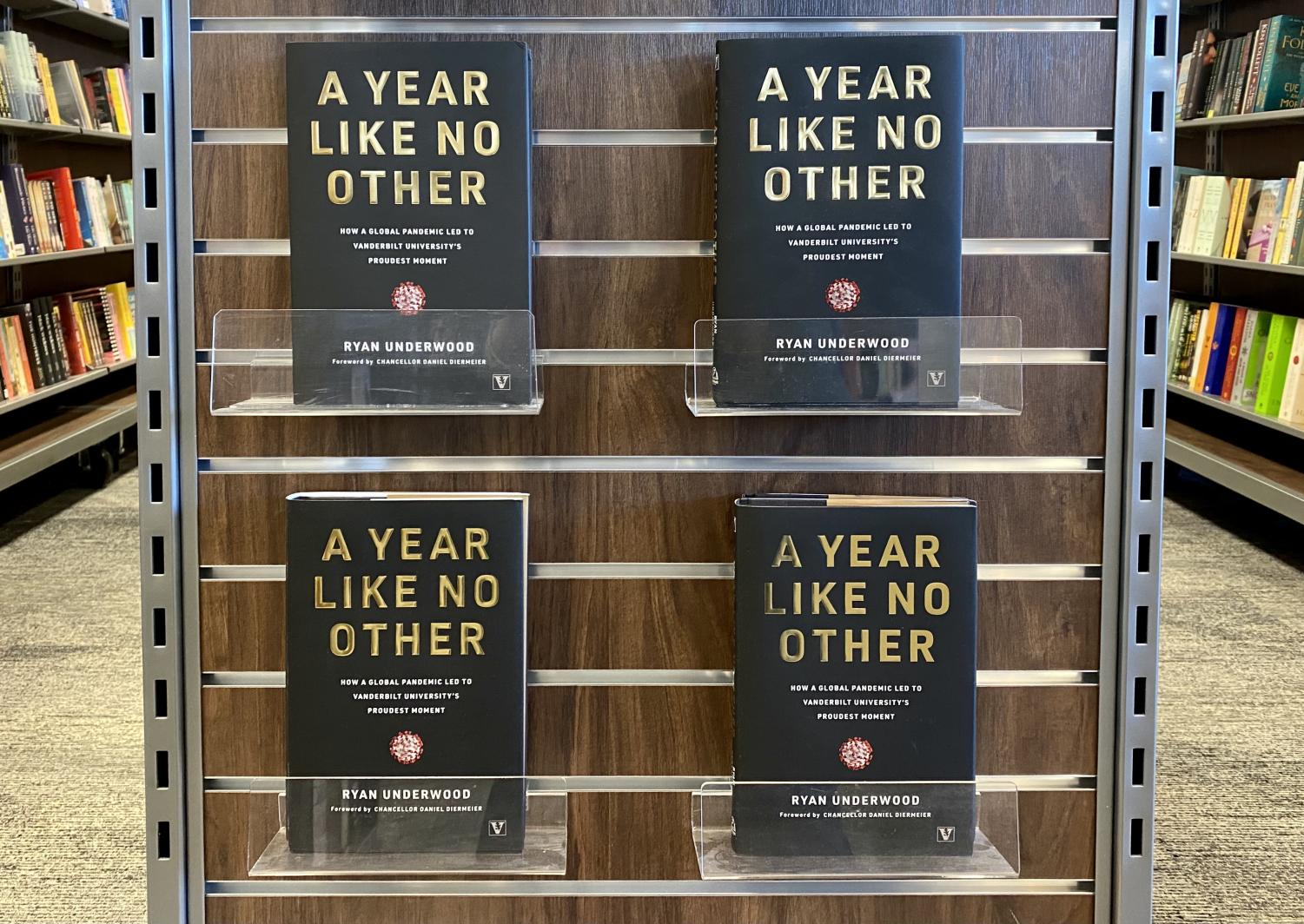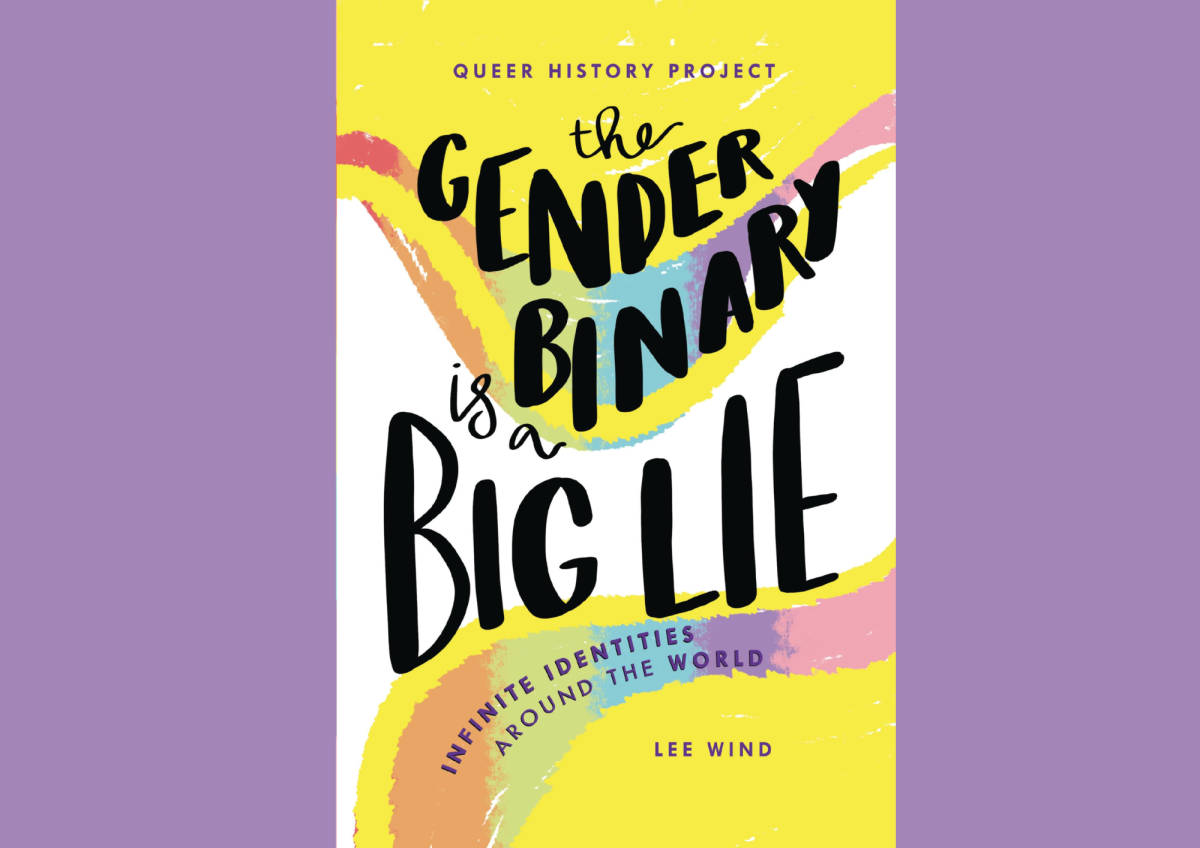This fall, Vanderbilt published a book with Forefront Books “A Year Like No Other: How a Global Pandemic Led to Vanderbilt University’s Proudest Moment.” The book, written by Ryan Underwood, director of editorial strategy for the university, details the university’s response to the pandemic and last year’s challenges and serves as a guide to crisis management. It was sent to faculty, students, and staff.
While I certainly am grateful for many of the ways that Vanderbilt’s administration and larger community handled the pandemic, this book is too focused on sugarcoating Vanderbilt’s legacy. The discussion of the university’s pandemic response leaves out their shortcomings that increased the level of strain placed on our community.
The book is broken up into three parts, bookended by a foreword, an epilogue and a “lessons learned” section. Part one delineates the early stages of the pandemic, when Vanderbilt made the decision to send students home during the Spring 2020 semester. Part two is about the decision to reopen for the 2020-21 school year and part three follows that year and details the programming Vanderbilt created to encourage students to “anchor down, step up,” and do their part to abide by COVID-19 safety protocols.
Most of the discussion centers around tough decisions, uncertainty and strength that community members exhibited in coming together around the common goal of a safe and in-person 2020-21 school year. Underwood talks about Vault testing, study-abroad, financial strain, dining, The Flip and so much more, coloring the narrative with interviews from faculty, staff and students. I must commend Vanderbilt on its many achievements, like its instrumental role in the development of the COVID-19 vaccine, which is detailed in the book. I am also grateful that we were able to live on campus last year and that research and learning didn’t have to stop.
But this book leaves out many of the things that made last year so difficult for both students and faculty. While “A Year Like No Other” praises the “squirrel shaming” signs around campus which were designed to promote “accountability,” many students recounted feeling uncomfortable about being expected to police their peers. Similarly, while Underwood’s account praises the university’s commitment to financial inclusion and support for the unique struggles faced by international students, I certainly remember when the university decided to charge international students a daily rate for staying on campus during the extended winter break, despite travel restrictions preventing them from returning to their home countries.
More profoundly, one of the most difficult aspects of the pandemic for students was its effects on mental health. While Underwood does acknowledge this concern, “A Year Like No Other” suggests that Vanderbilt’s pandemic programming, like virtual jewelry making, was enough to combat the serious isolation students were facing. In reality, a Nov. 4, 2020, survey of over 2,300 undergraduates conducted by the Vanderbilt Student Government (VSG) found that a whopping 69.5 percent of students reported mental health issues and 89.2 percent reported Zoom fatigue. Students had to plead with the administration for a break. A petition was even circulated across campus calling on administration for “mental health days” when students can take time to rest and recuperate from both physical and mental tolls. The university’s compromise, two in-class “reading days” stuck in the middle of the week during a busy semester, did not provide a reprieve.
The ongoing battle between students and the administration led students to leave a flurry of critical comments on the university’s Instagram page, with students accusing the University of deleting comments. In the end, exhausted and isolated students did not get a break. It was extremely troubling to see the university ignore the extent of students’ mental health concerns, especially when students were taking initiative and advocating for themselves. It’s hard to see how this severe neglect of student mental health constitutes a proud moment for the university.
The onset of the pandemic also came with a national reckoning over racial injustice. Underwood and Chancellor Daniel Diermeier, author of the book’s foreword, mentioned this as part of the “perfect storm” that made 2020 so challenging. They discussed, in particular, the measures the university took to support students of color. They held a memorial service, “significantly” increased the budget for the Office of Equity, Diversity and Inclusion, created an ad hoc Board of Trust committee and “confront[ed] racism in Vanderbilt’s history, among other actions.” And, when a video of a student using a racial slur surfaced, the Title IX office investigated and the university issued a statement condemning the language. However, the book fails to mention the contentious, racialized VSG election.
Further, while the book states that Vanderbilt was committed to reckoning with its racist history, it neglects to provide any examples of this, and leaves out the ongoing struggle between students and administration to remove slave owners’ names from our buildings, and to provide support for Asian students, Indigenous students, Black students and all students of color and first-generation students. This was a year when students banded together to boycott donating money to the university unless it addressed their concerns, many of which remain unaddressed. Once again, it is hard to see how so many marginalized students feeling unsupported generated pride in the university.
I will not pretend that the university has nothing to be proud of. I am grateful to the hardworking administrators, faculty and staff for all that they did to make last year safe and educational. But when Underwood set out to chronicle “an inside look at how the university coped” with the year, as stated on the book’s back cover, he left out so much of what made last year so unique and difficult by creating a romanticized version of what happened. If this book is to serve as a historical record and guide to crisis management, it shouldn’t leave out the whole truth to support an agenda.
Instead of crafting a balanced account of last year, “A Year Like No Other” promotes Vanderbilt-exceptionalism.
This is epitomized in Diermeier’s legacy-focused remarks.
The book begins with a foreword penned by Diermeier. In it, the chancellor compares himself and his role to President John F. Kennedy and his quest to put a man on the moon, and Prime Minister Winston Churchill, who shepherded a besieged Britain through a world war. He writes that he would rather lead Vanderbilt in a time of crisis than a time of peace: “Better to be prime minister of Britain from 1940 to 1945 than from 1950 to 1955.”
This comparison highlights what is wrong with the book—it is self-congratulatory and glorifies a year that was not most people’s proudest moment, but instead, their most difficult. He concludes the book with more thoughts of Churchill and legacy: “How we act during crises shapes how we are remembered. The actions we take, and our reasons for taking them, have a lasting impact on our personal legacies and on the legacy of Vanderbilt.” That may be true, and the chancellor arrived at Vanderbilt only to have COVID-19 land squarely on his plate–which is no easy challenge. But it seems apparent to me that during a time of crisis and tragedy, our eyes should not be toward personal or even institutional legacy, but instead to fully addressing the challenges of the crisis. While Vanderbilt did a lot of good and deserves to be remembered for it, it also failed to support mental health, calls for anti-racist action and more.
Ultimately, “A Year Like No Other” paints a pretty but false picture of last year in erasing these struggles from its narrative.
The Vanderbilt Graduate Student Union will be holding a “Rewriting the Narrative” event, at which community members can return their copy of the book. They said in an Instagram post that they “were understandably frustrated by how the administration glorified their handling of the pandemic.” The event will take place on Thursday, Nov. 18 at 5 p.m. on the steps of Kirkland Hall.










Anon • Nov 22, 2021 at 8:58 am CST
This book was Vanderbilt propaganda in every sense of the word, and then they sent a copy to every students home address…